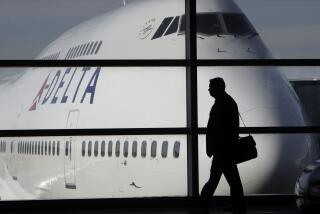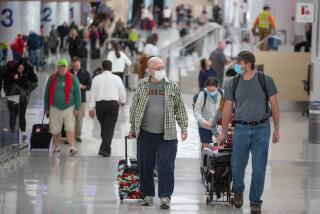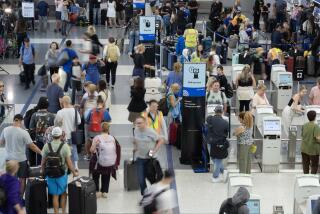Lengthy airline delays in July blamed mostly on storms
Severe summer storms in Chicago were blamed for most of the 18 lengthy delays that kept passengers stuck on grounded planes in July, the U.S. Department of Transportation reported Monday.
Federal rules that took effect in 2010 prohibit airlines from keeping passengers stranded on a grounded domestic flight for more than three hours without allowing passengers to return to the terminal. On international flights, the limit is four hours. Airlines that violate the rules can be fined up to $27,500 per passenger.
The Department of Transportation is investigating 18 tarmac delays of more than three hours for domestic flights that took place in July and one international flight that was delayed for more than four hours.
Of those delays, 16 took place during stormy weather on July 13 involving flights landing or departing from Chicago O’Hare International Airport. The other two were flights from Washington, D.C., to Detroit and from Philadelphia to Los Angeles.
One international flight, from Guyana to New York, was delayed for four hours and five minutes.
The Department of Transportation gives exemptions for safety, security or air traffic control-related reasons. Extreme weather can cause such delays, the federal agency said.
So far, only two airlines have been fined under the tarmac delay rules. American Eagle Airlines was fined $900,000 for stranding more than 600 passengers on more than a dozen flights in May 2011.
In August, the federal agency fined JetBlue Airways $90,000 for not informing passengers on a plane delayed at New York’s John F. Kennedy International Airport that they could leave the plane as it sat at the gate with the door open.
ALSO:
Denver firm designs airline seat that slides
Most Americans want Wi-Fi on planes but don’t want to pay much
Hotel rates up and rising, studies find
Follow Hugo Martin on Twitter at @hugomartin
More to Read
Inside the business of entertainment
The Wide Shot brings you news, analysis and insights on everything from streaming wars to production — and what it all means for the future.
You may occasionally receive promotional content from the Los Angeles Times.











